Catcher in the Rye – J.D.Salinger – 1951
Reviewed by: Stacey
Date: 11 September 2004
As an avid reader, and fan of classic literature, I have come across hundreds of novels, short stories etc. Catcher in the Rye remains to be one of my favourites. I really enjoyed this book, and though found depressing in parts, resolved itself towards the end. I’d recommend this novel to anyone.
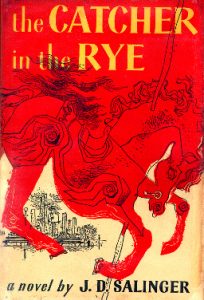
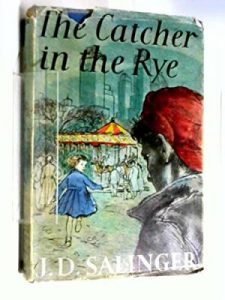
Reviewed by: Michael Sympson
Date:10 June 2002
The previous reviewer already pointed out the sensual qualities of the book – it is written by Salinger after all. For Salinger’s aficionados, his novel is a “real life” experience. “Gangly” 16-year-old Holden Caulfield, his “adorable” little sister Phoebe, his “crude” macho roommate Stradlater, his teachers and peers at Pencey Prep, old Maurice, the nasty New York elevator boy, phony Sally Hayes, who Holden used to neck with “so damn much” that he thought she was intelligent, smart Jane Gallagher, the muckle-mouthed girl who Holden used to play checkers with and once almost necked with, the two nuns at breakfast counter at Grand Central Station – and then, lurking at the shadowy core of it all, the tragic ghost of Allie, Holden’s dead brother” – they all appear as real as the kids from around the block. Which is a good thing.
I like Mark Twain (1835-1910), the literary equivalent to a stand-up comedian – delivery is everything. As an American writer he is important, as Hemingway (1899-1961) had already pointed out. The “Huckleberry Finn” is indeed the archetype for a whole new direction in American writing. The “Huckleberry Finn” is the one book of Twain I don’t like. Intended or not it created the parochial, corn-pone, folksy, gutsy, I tell ya, adolescent cynicism, as phony as Rousseau’s constipation of the heart possibly can get, and which has disfigured the literature of this country ever since, no matter how proudly it is waved into the bland faces of a politely silencing world.
You guessed it, Salinger’s “Catcher in the Rye” is the one book by Salinger (*1919) I absolutely detest. But it would be extremely unfair to Twain and Salinger to hold against them these slips of a better judgement. In Twain’s case we have someone who is keeping his tongue firmly in the cheek. Twain had humour and tons of it to burn. Salinger – well, let’s just say he was carried away by his talent, pushing the envelope, trying to find out how far he could venture into a medium foreign to his own nature. Salinger has genius, and tons of it to burn.
Personally I have a dim view of this piece of nostalgia from then 50s. The whole decade is an embarrassment for me. Sudden flashes of memory make me wince: it was part of my childhood; it was all the childhood I ever had. If I can’t avoid a sudden flash, I take a sharp deep breath and mentally elbow it behind. But many don’t see it that way. I wish them luck – read and enjoy! Salinger definitely is one of the most enjoyable reads around. He has the gift. But make sure you are getting an American edition – I mean, really set and printed in the USA.
English editions not only change the typography, they change the words. Go to a book shop with both editions on the shelf and see for yourself the difference it makes and what it does to the spirit of the thing. And this is perhaps a structural weakness of the book: in imaginative literature style and structure are everything, but when the nuance of expression becomes of such importance that it affects the narrative substance, a red flag goes up.
If I compare how the wear and tear of time has affected “Madame Bovary” and “Don Quixote,” then I notice with surprise that the crazy Don still shows many signs of vitality. He may easily make it for an other few centuries before Elysium opens for him the tunnel towards oblivion. As for Emma, on the other hand the prognosis is dim. The book is destined to end up as a hollow husk – labeled a classic. Salinger of course is a bit weightier than that: he developed Flaubert’s method to new heights, his narrative perspectives and mimetic representations are miraculous.
Michael Sympson
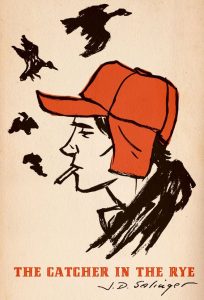
Reviewed by: Ceren Arik
The Catcher in the Rye is almost sacred to me. I read it when I was 15 and didn’t know it was one of the milestones of depressed literature back then. It was actually for my English class and I had to keep a log as I read it chapter by chapter. I still keep that log and I do not remember writing with that much zest since. Salinger is so good in dealing with the subtleties of life. Or maybe I should say with things that seem subtle but are actually what life is all about. The guy, Holden, sits down and writes about ‘goddamn’ baseball glove (and makes it descriptive as ‘hell’, too) for example, he talks about a car not being able to get started and about why some people one shouldn’t kid even if they deserve to be kidded. I had shivers running down my spine on every page because it was as if Holden was looking out at the world through my eyes. But I really think it should be read before you’re 20, before reality (in the sense that is most widely used, ’cause otherwise what’s more real is debatable) kicks in. This book is for those who feel out of this world.


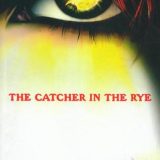
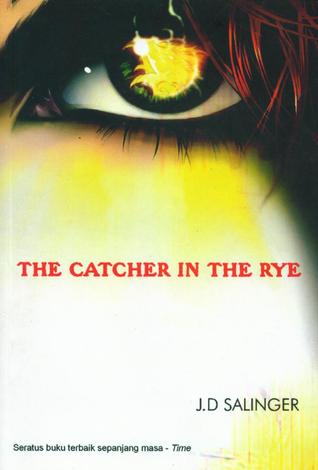
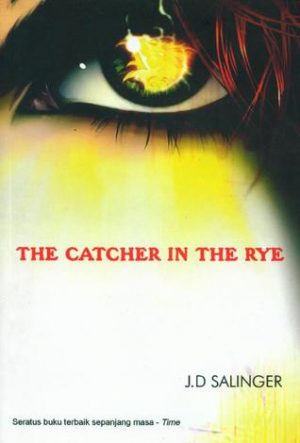












What a book. All the generations should read